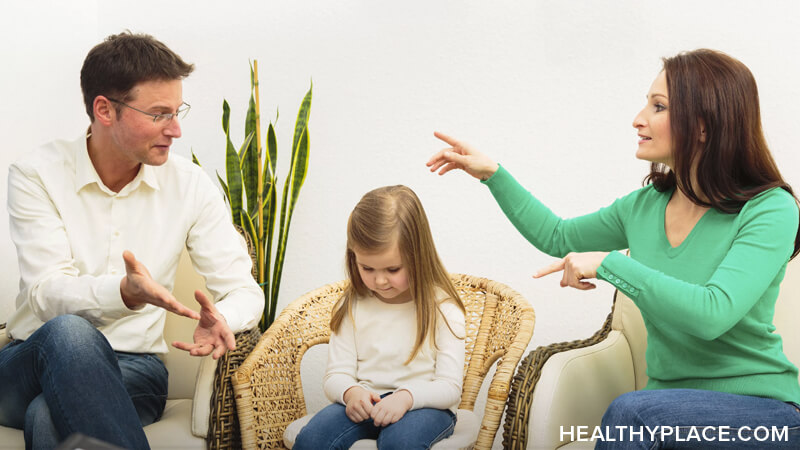Parental Conflict Produces More Than Fleeting Distress for Children

"Conflict between parents may have distinct meanings and implications for the child and family system even after considering the effects of parenting difficulties."
(February 12, 2006) - Six-year-olds whose parents displayed frequent disagreements in their relationship responded to subsequent parental conflicts with elevated distress and negative thoughts, according to a team of researchers from the University of Rochester and the University of Notre Dame.
In the latest issue of the journal Child Development, the team reported examining 223 children twice during a one-year period for their reactions to conflicts between their parents. First, their mothers and fathers participated alone in an exercise in which they attempted to manage and resolve a common point of disagreement. The researchers rated the parents' level of hostility or indifference to capture the characteristic ways that parents managed their conflicts. Then the children observed their parents working through two simulated telephone conversations: a short conflict and a resolution.
Researchers found that the ways parents managed conflicts in the exercise predicted how children responded to the simulated phone conflict both within a two-week period and one year later. Parents who displayed high levels of discord had children who responded with greater than expected distress to the simulated phone conflict.
"The stressfulness of witnessing several different types of conflict may have long-term implications for children's functioning by directly altering their patterns of responding to those conflicts," says Patrick T. Davies, lead author and professor of psychology at the University of Rochester. "Our results highlight the possibility that several different types of conflict between parents may negatively affect the well-being of children over time," he says.
According to the authors, prior experiences with parental conflicts can alter the way children cope with later conflicts. "Conflict between parents may have distinct meanings and implications for the child and family system even after considering the effects of parenting difficulties," Davies points out.
Although previous work has shown that children don't get used to their parents discord but, instead, become more sensitive to it, Davies and his colleagues wondered if different forms of destructive conflict between parents played different roles in children's reactions. It didn't matter whether the adults disagreed in openly hostile ways or appeared indifferent during the arguments. Both ways of managing conflict were linked with higher than expected distress in children that lasted even one year later.
The primary purpose of the study was to chart stability and change in children's responses to a conflict in the context of interparental and family interactions in the early elementary years. The authors believe that the study lays the foundation for new testing on how children adapt when dealing with interparental conflict.
APA Reference
Staff, H.
(2022, January 11). Parental Conflict Produces More Than Fleeting Distress for Children, HealthyPlace. Retrieved
on 2026, March 5 from https://www.healthyplace.com/parenting/news/parental-conflict-produces-more-than-fleeting-distress-for-children

